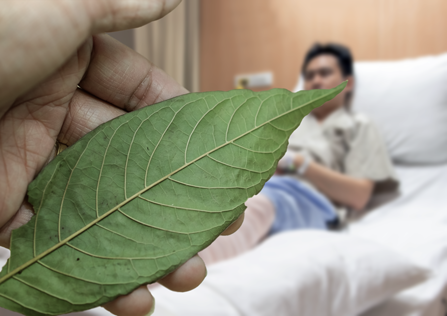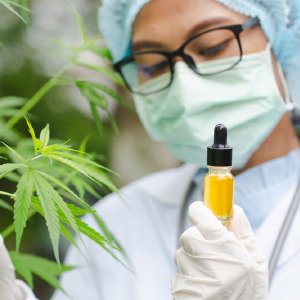Evidence Now Links Kratom to Overdose Deaths

In an age where the legality and use of drugs are heatedly debated, it’s big news when new data comes out regarding a popular drug and the real risks that its use carries. Case in point, there is a new development in the works regarding kratom, a natural, plant-based drug native to Southeast Asia.
What Is Kratom?
The word “kratom” actually refers to the kratom tree, which is found in Southeast Asian countries like Thailand, Malaysia, Indonesia, and Borneo. The leaves of that tree contain pain-relieving properties. They also possess opioid-like effects. The leaves are chewed, dried, smoked, extracted, brewed into tea, or put into capsules by Southeast Asian natives. Use of the drug was quite prevalent in countries where kratom trees grow naturally, but now several of these countries have outlawed the use of kratom due to deaths among residents. The use of kratom within these nations has fallen as a result.
New Data from CDC Research
Much like the marijuana dispute, the U.S. has been the stage upon which a great debate has ensued over kratom. Those who support the drug decry the DEA’s efforts to criminalize it, saying that kratom is a miracle pain reliever that comes without the harsh effects of opioid pain relievers.
At the other end of the spectrum, however, the DEA and FDA have gathered data which paints an entirely different picture of kratom. According to their research, the kratom drug does create risk in its use. It is addictive, mind-altering, habit-forming, and so on.
But it was the Centers for Disease Control and Prevention that put the last nail in the coffin regarding kratom. It was the CDC which proved that kratom could be fatal.
The CDC published a lengthy research paper on the truth about kratom, sticking only to the facts. Published April 12th, 2019, this report was the first of its kind that pulled away the veneer of uncertainty regarding kratom and which showed this drug for what it truly is—a dangerous, addictive substance.
Out of the entire research paper, the line which delivers the death knell to the argument of the kratom supporters reads:
“
CDC analyzed overdose deaths in which kratom was detected on postmortem toxicology testing and deaths in which kratom was determined by a medical examiner or coroner to be a cause of death in 11 states during July 2016–June 2017 and in 27 states during July–December 2017. … Kratom was determined cause of death (i.e., kratom-involved) by a medical examiner or coroner for 91 (59.9%) of the 152 kratom-positive decedents, including seven for whom kratom was the only substance to test positive on postmortem toxicology, although the presence of additional substances cannot be ruled out.”
The report in its entirety is quite impressive. The report shows that kratom's harmful effects easily outweigh any perceived benefit in using this drug, proving once and for all that the drug should not be used.
“FDA is concerned that kratom, which affects the same opioid brain receptors as morphine, appears to have properties that expose users to the risks of addiction, abuse and dependence.”
In response to concern about kratom as put forth by the CDC, the Food and Drug Administration also released a statement. The FDA had quietly been researching kratom and advising against its use, but the federal organization had not yet taken decisive efforts to outlaw the substance. In light of the CDC report, the FDA released this statement: “FDA is concerned that kratom, which affects the same opioid brain receptors as morphine, appears to have properties that expose users to the risks of addiction, abuse and dependence.” Given the recent report released by the CDC, it’s likely only a matter of time before the FDA outlaws kratom completely. Several states have already done so.
Taking a Firm Stance on Kratom and Other Drugs

Let’s be very clear about something here. By saying that kratom is harmful, addictive, and potentially lethal, I am in no way encouraging the use of opioid pharmaceuticals as the “standard approach to pain relief.” Opioid pain relievers are also extremely addictive and dangerous. Kratom killed 91 people from July 2016 to June 2017. Opioid pharmaceuticals killed thousands of people in that same period. Just because one drug is man-made and the other occurs naturally does not make one better or worse than the other. Both are harmful. Both drugs should be avoided at all costs.
We need to take a firm stance on all drugs which create harmful effects in people. It does not matter if they are drugs which occur naturally and are plant-based, or if they are man-made drugs synthesized in a lab. If a substance is potentially harmful to the human body and mind, we should be extremely wary of consuming it. We should seek out alternatives.
And there are alternatives to pain relief which are not dangerous or life-threatening:
- Capsaicin
- White Willow Bark
- Turmeric
- Ginger
- Magnesium
- Cat’s Claw
- Valerian Root
- and a bevy of other natural remedies come to mind.
Helping People Who Fall Prey to “Natural” Yet Addictive Drugs
If you are seeking help for yourself or a loved one who is struggling with an addiction to a natural or plant-based drug, contact a residential drug treatment center. Addiction is addiction. One should not belittle oneself and seek insufficient care for their habit just because they think their addiction to a plant is not worthy of care at a residential facility. All addiction deserves the best care possible, and such care is found at residential drug and alcohol rehab centers.
If you or a loved one is using kratom, do not delay in seeking help through residential treatment. Your children and friends are being lied to about the dangers of kratom. It is not a “safer” alternative to opiates and it is indeed addictive. Seek help as soon as possible, no matter what your or your loved one’s addiction is.
Sources:
Reviewed and edited by Claire Pinelli ICAADC, CCS, LADC, RAS, MCAP


